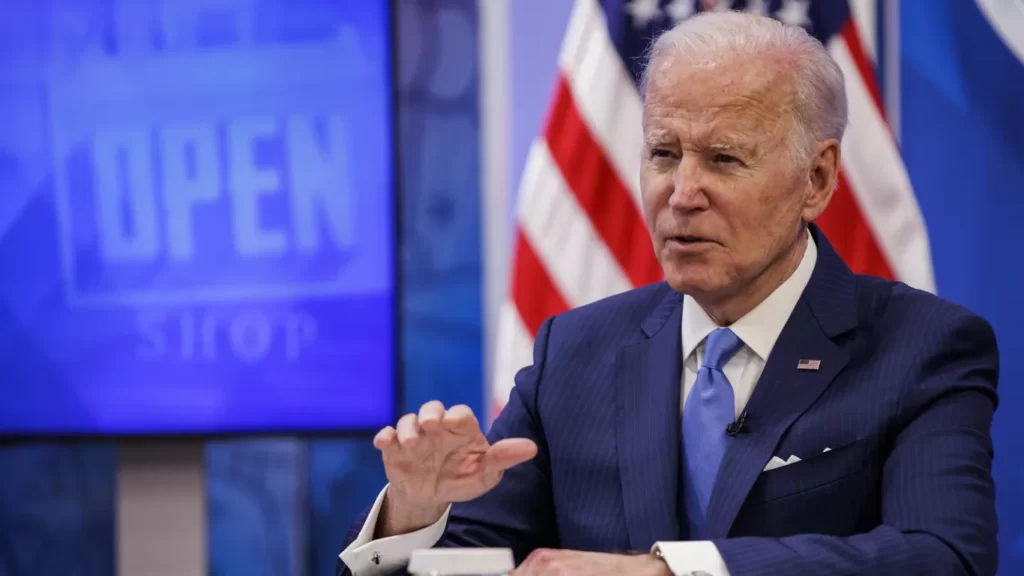- Hans Nichols, author of Axios Sneak Peek
Biden administration officials are debating how — and even whether — to lower some of former President Trump’s tariffs against China to help ease inflation, people familiar with the matter tell Axios.
Why it matters: The administration has limited options to lower prices for American consumers but knows it will be punished in this fall’s midterms if higher prices persist throughout the year.
- Providing so-called “exclusions” for some goods — not subjecting them to the Section 301 tariffs imposed by Trump — is one tool the current president has at his disposal.
- But Biden, like his predecessor, has pursued a confrontational approach toward China, and officials have been reluctant to relax the tariffs without extracting something in return.
- In August 2019, Trump imposed $300 billion worth against China, saying it had failed to follow through on promises to buy more American agricultural products and stem the sales of fentanyl.
Between the lines: The debate is pitting economists at Treasury, including Secretary Janet Yellen, against China hawks on the National Security Council. They want to keep pressure on China.
- Spokespersons for both entities declined comment.
Driving the news: Last Thursday, Daleep Singh, the deputy national security adviser overseeing sanctions, publicly enumerated a range of potential consumer products that could be excluded.
- “For product categories that are not implicated by those objectives, there’s not much of a case for those tariffs being in place,” he said at an event hosted by the Bretton Woods Committee.
- “Why do we have tariffs on bicycles or apparel or underwear?”
- His comments were followed by remarks from Yellen in a Bloomberg TV interview. She said lowering some tariffs was “worth considering” and that “it’s something we’re looking at.”
- Those comments drew rebukes from some labor officials, who reached out to the White House to raise their concerns.
The big picture: The president hasn’t made a final decision about what to do — and whether to impose tariffs of his own.
- While the United States trade representative is considering a potential Section 301 investigation, which could lead to new tariffs, officials have yet to coalesce behind a unified plan of action.
- “From the beginning of the administration, we talked about how some of the tariffs implemented by the previous administration were not strategic and, instead, raised costs on Americans,” White House press secretary Jen Psaki said on Monday.
- “And our effort — which has been ongoing, of course — has been to ensure current Section 301 tariffs align appropriately with our economic and trade priorities.”
What they are saying: Rep. Tim Ryan (D-Ohio), who is running for the Senate, told Axios: “Lifting tariffs on so-called ‘non-strategic’ goods from China would be a major mistake, doing nothing to ease inflationary pressures on American consumers and rewarding a human-rights-abusing, communist government for years of cheating American workers and stealing jobs.”
- Economists, including President Obama’s former Treasury secretary Larry Summers and former Council of Economic Advisers chair Jason Furman, have advocated for a different approach.
- “Removing the China tariffs is the single-largest policy lever to bring down inflation that President Biden has,” Furman told Axios.

Source: axios.com

